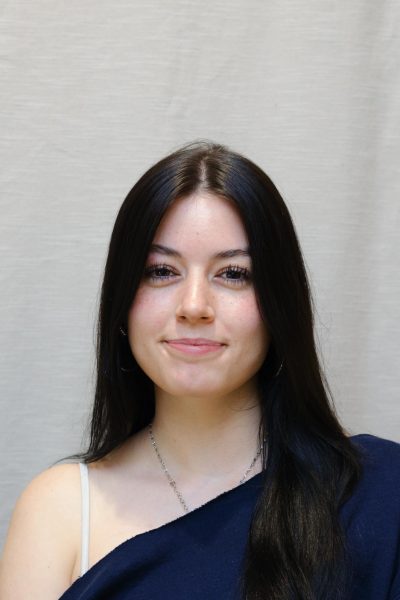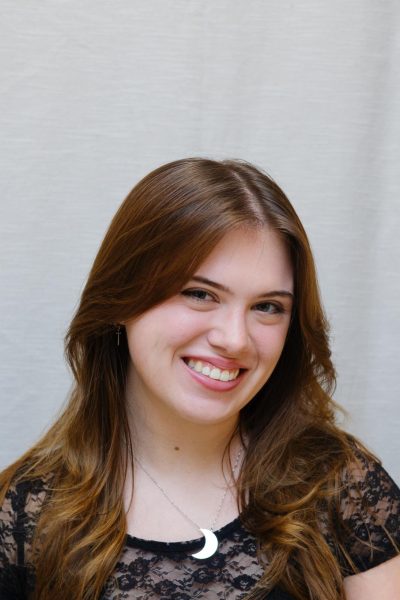I’ve never been faced with the gravity of my reality as a journalism major more than I was about three weeks ago when I found myself staring at my reflection cast by the mildly opaque plastic separating my space from that of the DMV employee, who was typing vigorously into his keyboard while flipping between my passport and W2 for confirmation of my identity.
It wasn’t the somewhat uncanny figure of myself, nor the fact that I was getting my learner’s permit at the age of 19 that made me stare a little deeper into the hanging divider in front of me, but rather the conversation that I could faintly hear my father having while he waited for me to finish my paperwork.
In the middle of a friendly conversation with the woman beside him, my father was questioned about why he was there. Naturally, he replied that he was present for moral support, pointing me out among the line of chairs in front of him. She then asked my age, naturally followed by what college I attended and, most dreadfully, my major. Which, expectedly, was followed by a reaction of shock and confusion.
I should’ve picked nursing, my father was told (to his agreement).
While I cannot speak on behalf of Chatham University, it’s undoubtedly true that universities are facing decreased enrollment in arts and humanities programs on a national level. According to The New Yorker and Yale Alumni Magazine, universities spanning from Arizona State University to Yale are facing dramatic decreases in once robust programs that invested in the humane and foundational.
A comment made in a half-joking manner made sense in the moment. As a late teenager lost in the commotion of identity smog and unclear career trajectory, a major as decisive as nursing appears undeniably enticing.
And while preservation of the arts and humanities is essential to the future of education and careers, it can be argued that we should not worry about these degrees disappearing completely, but rather focus our attention on the shifting presence of these subjects in the ever-growing STEM fields while also supporting students still pursuing arts and humanities.
It was following this dreaded DMV interaction that I began to further my perceptions on the role that my educational interests such as journalism, media and philosophy play in such a STEM-centered reality. While at times it seems as if the two hold nothing in common, these fields could not need each other more.
“I think people will always be interested in ideas about living — ideas about how humans do things,” Assistant Professor Ryan D’Souza says. Instructing communications courses at Chatham, D’Souza teaches a wide array of students and majors. “It’s a matter of helping people meet their interest in some sort of way.”
The arts teach understanding to those who are willing to dissect its lines of graphite, clay and acrylic and the humanities echo lessons of integrity and interconnectedness, dating back to the beginning of personhood.
“I do think this idea of profitable majors or profitable careers is a problem in thinking because things like nursing, medicine, law and engineering should all be social jobs,” D’Souza says. “If we suddenly shift the purpose why someone gets into this field for money and not necessarily humanity and the social importance of the job, we have people who are there just to make a buck.”
Fears regarding economic security are ever-growing, especially for those who are just starting to think about their long-term future. Seemingly secure jobs, such as nursing, are still oftentimes worrisome and underpaid. According to the U.S. Department of Health and Human Services, healthcare workers are choosing to leave the field early and have increased risks of developing mental health challenges. History echoes these injustices, and philosophy and language arts give people the power to express these concerns.
The sciences will continue to be an opportunity for extreme growth for societies, institutions and individuals, but only in righteousness when paired with the ideas expressed through non-STEM studies.
Director of Career Development Hannah Hepler assists both students and alumni by conducting career consultations. She says, “Yes, your major may be important, and that may be something that you want to go into, or it’s just something that you’re really enjoying studying. [An important thing] is really being able to think and expand your thinking to be ‘What kind of lifestyle do I want to see myself living after university?’” Her experience in connecting Chatham community members to work opportunities allows her to see programs and their students from a fresh angle. “So being able to not only solely focus on your field and industry but start to really focus on the life that you want to create and a life that would make sense and have meaning to you.”
Maybe we’re more alike than I’ve considered. No matter the major, maybe we’re all just chasing our ends — or beginnings.




